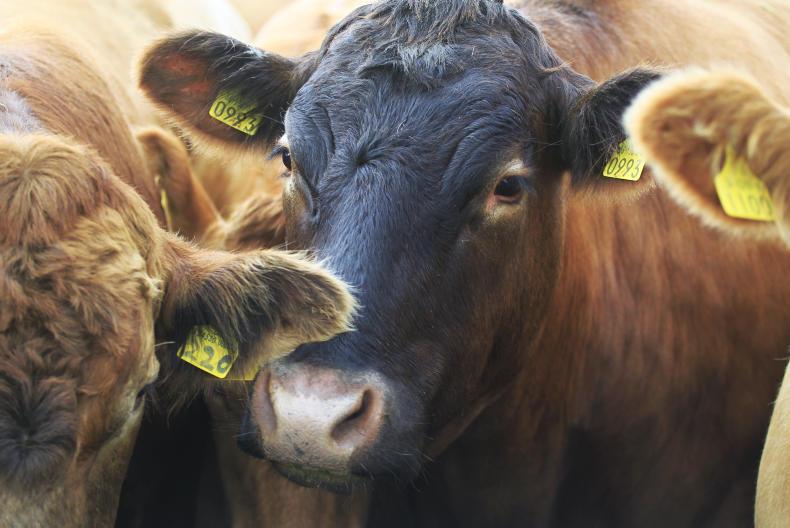While the trade deal divided opinions among Irish MEPS, farm organisations have also expressed disappointment at the approval of CETA, which will provisionally come into effect from April this year.
Prior to the passing of the trade deal, the Irish Cattle and Sheep Farmers’ Association (ICSA) president Patrick Kent warned it would be problematic for Ireland, adding that 5% of Canadian farmers produce nearly half of Canada’s food produce.
Reacting to the news, the ICSA president said: “Beef will be the big loser, with 50,000t of ultra-cheap Canadian beef coming into the European market,” adding that it will be disastrous for the beef sector.
IFA president Joe Healy also expressed concerns for the beef sector: “Our concern remains that Canadians will target the high-value market and this could have a disproportionate impact on prices in the beef and pigmeat sectors.
“The TRQ allocated to Canada must be taken into account in future trade negotiations. Last year’s EU trade report highlighted the threat of future concessions, particularly in relation to Mercosur,” he added.
Impact on the dairy trade
For dairy trade, there will be a new bilateral quota of 17,700t of cheese, 16,000t of which is for high-quality cheeses and 1,700t for industrial cheese.
A further 800t of high-quality cheese will be added through a technical adjustment to the EU portion of an existing WTO TRQ, which means the effective total will be 18,500t – more than doubling EU exports of cheese to Canada.
However, the Irish Creamery Milk Suppliers Association (ICMSA) president John Comer was still critical of the deal, describing it as “highly dangerous with potential, very negative, long-term implications” from a farmer’s perspective.
“The agri-food sector and farm families are uniquely exposed in terms of trade deals such as CETA as well as the possible Mercusor and New Zealand trade deals.
“Irish beef farmers are very exposed to such concessions and it is important that Bord Bia and the beef industry continue to move Irish beef up the value chain and afford it the necessary level of protection from imported beef,” John said.
Read more
EU Parliament approves CETA
While the trade deal divided opinions among Irish MEPS, farm organisations have also expressed disappointment at the approval of CETA, which will provisionally come into effect from April this year.
Prior to the passing of the trade deal, the Irish Cattle and Sheep Farmers’ Association (ICSA) president Patrick Kent warned it would be problematic for Ireland, adding that 5% of Canadian farmers produce nearly half of Canada’s food produce.
Reacting to the news, the ICSA president said: “Beef will be the big loser, with 50,000t of ultra-cheap Canadian beef coming into the European market,” adding that it will be disastrous for the beef sector.
IFA president Joe Healy also expressed concerns for the beef sector: “Our concern remains that Canadians will target the high-value market and this could have a disproportionate impact on prices in the beef and pigmeat sectors.
“The TRQ allocated to Canada must be taken into account in future trade negotiations. Last year’s EU trade report highlighted the threat of future concessions, particularly in relation to Mercosur,” he added.
Impact on the dairy trade
For dairy trade, there will be a new bilateral quota of 17,700t of cheese, 16,000t of which is for high-quality cheeses and 1,700t for industrial cheese.
A further 800t of high-quality cheese will be added through a technical adjustment to the EU portion of an existing WTO TRQ, which means the effective total will be 18,500t – more than doubling EU exports of cheese to Canada.
However, the Irish Creamery Milk Suppliers Association (ICMSA) president John Comer was still critical of the deal, describing it as “highly dangerous with potential, very negative, long-term implications” from a farmer’s perspective.
“The agri-food sector and farm families are uniquely exposed in terms of trade deals such as CETA as well as the possible Mercusor and New Zealand trade deals.
“Irish beef farmers are very exposed to such concessions and it is important that Bord Bia and the beef industry continue to move Irish beef up the value chain and afford it the necessary level of protection from imported beef,” John said.
Read more
EU Parliament approves CETA






 This is a subscriber-only article
This is a subscriber-only article










SHARING OPTIONS: